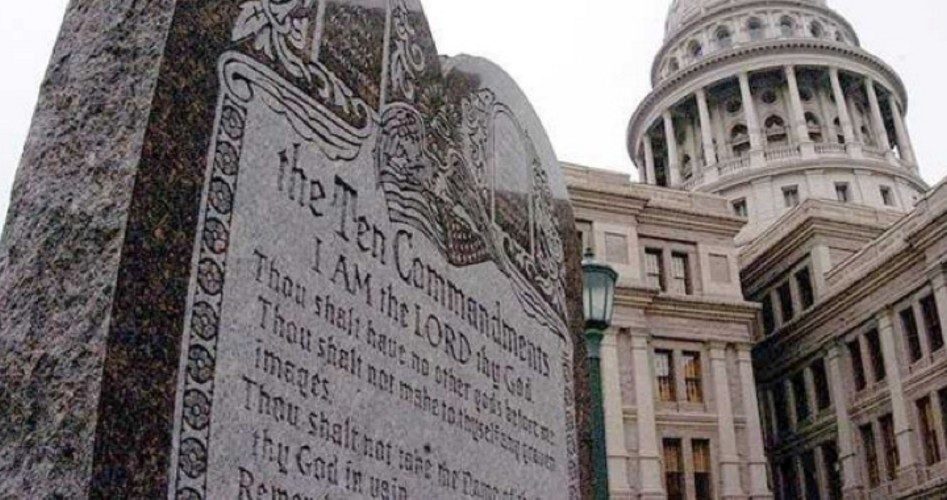
A Florida Christian ministry that has been distributing food to the needy for the past 31 years said it will drop all connections with the federal USDA agriculture bureaucracy rather than bow to orders that it must remove Christian symbols from its facility. Fox News reported that officials from the Christian Service Center of Lake City (CSC), Florida, were told by the state agriculture department that in order to continue to receive food from the USDA they would have to remove portraits of Christ and a 10 Commandments display from their facility and stop giving Bibles to those who came for food.
“They told us they could no longer allow us to have any religious information where the USDA food is going to be,” the group’s executive director, Kay Daly, told Fox.
The USDA policy boils down to the “separation of church and state” that secular groups read into the First Amendment. A USDA spokesperson explained to Fox News that “under current law, organizations that receive USDA nutrition assistance can still engage in religious activities so long as the activity is not used to create a barrier to eligible individuals receiving food.” In the minds of USDA bureaucrats, a banner in the CSC that reads “Jesus Is Lord” and pictures representing Jesus equate into a barrier to those coming to the facility for help.
Instead of complying with the ruling, Daly said, the group has decided to simply drop the USDA’s help and trust God for His provision. “If God can multiply fish and loaves for 10,000 people, he can certainly bring in food for our food pantry so we can continue to feed the hungry,” said Daly.
Daly told the Christian Post that when a counselor with CSC meets with a person in need, “We ask them if they know Jesus Christ and if we may share with them. If they decline, we don’t. If they do want to, we share the gospel with them. Sometimes we lead them to the Lord and sometimes we don’t.”
She said that while faith in Christ is not a litmus test for whom the group serves, they are nonetheless a Christian ministry with a mission of sharing the gospel. “Our purpose is to help people in need and to share the gospel of Jesus Christ,” she said. “We are going to pray with them. We are going to offer them a Bible. We are going to counsel them in Christian help. We are going to use our chapel.”
To eliminate the core of their beliefs, as the USDA appears to demand, would be an unacceptable compromise, Daly told the Christian Post. “We would deny what we stand for, which is Jesus Christ, which is why we are,” she said. “The USDA has drawn the line in the sand. If they are going to put stipulations on the use and distribution of the food, we make a choice and our choice is to stand with Christ.”
Daly said that area churches, local Christians, and others have already stepped up to fill the void left by the USDA. She said that above all else “I’m called to do what the Lord tells me to do. I’m not called to worry about it. I pray about it. The Lord answers our prayers and we move forward one day at a time, one person at a time.”
In 2012, an Indiana food pantry faced the loss of its USDA food privileges after its director refused to stop offering to have pantry volunteers pray for needy people coming to his facility for help. Ultimately government bureaucrats backed down from their threats when Paul Brock, founder of Community Provisions of Jackson County, Indiana, agreed to wait until individuals receive their food before volunteers ask them if they would like prayer. “I’m glad this is finally over,” Brock said in response to the end of the annoying federal roadblock that prevented him from helping people. “I need to get back to work.”



